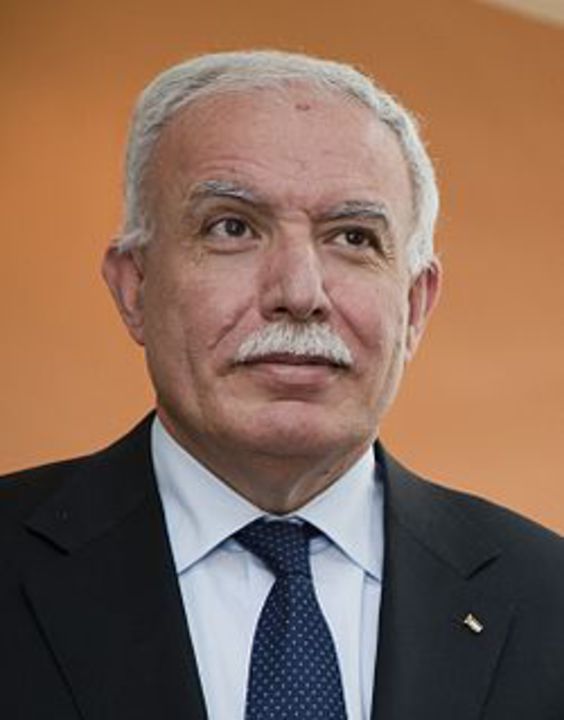Prospects for the peace process
Summary of a meeting with Riad Al-Maliki, Minister of Foreign Affairs
for the Palestinian Authority, held on June 12 at Casa Árabe.
June 12, 2017
MADRID
• The visit coincided with the fiftieth anniversary of the Six-Day War and the subsequent occupation of the territories of Gaza and the West Bank, including East Jerusalem. This year is also the commemoration of seven decades since the Nakba and one century since the Balfour Declaration.
As part of the commemoration of the three main anniversaries related with the occupation of the Palestinian Territories, on June 12 Casa Árabe hosted a visit by Riad Al-Maliki, the Minister of Foreign Affairs of the Palestinian Authority, to review the future prospects of a peace process with Israel.
At the event, which was attended by journalists, scholars and members of the diplomatic corps from various embassies, Al-Maliki assured that he had held conversations with his Spanish counterpart in order to seek a strengthening of bilateral ties between Spain and Palestine. He also pointed out the importance of opening up a new negotiation process to improve the deficiencies in the Oslo Accords of 1993: “These accords have been understood as a stage in a state of constant permanence and not as an independence process,” the minister stated. Another aspect mentioned was the lack of initiative by the International Community in finding a solution for a conflict that has endured for years across time. Similarly, the diplomat complained that the 1993 accords do not acknowledge the existence of a Palestinian Foreign Affairs Ministry, which is why Israel does not recognize the role which he plays abroad.
Another point highlighted by the Palestinian representatives is the willingness of the president of the United States, Donald Trump, to resume the process of negotiations between the two parties in the conflict. Al-Maliki assures that “without a third party, and without setting a date, a negotiation cannot be held.” Moreover, the minister indicated that the United States is the “only party that can influence Israel to seek a solution,” compared with the European Union, which he says has never held enough weight in the matter.
The event did not avoid the topic of the need to establish a series of “reference points” through which potential future agreements may be reached. These would consist of: Israel’s withdrawal to the borders of 1967, the refugees’ right to return, the two-State solution and the naming of Jerusalem as the indivisible capital of Palestine. To do so, the representative of the Palestinian Authority expressed his willingness to work with Hamas to end the divide which keeps them from finding any path for negotiation with Israel. “We have offered a plan divided into two parts: the first is that we are willing to establish a national unity government, and we have spoken with the International Community so that Hamas may join that government, provided that it accepts the International Community’s conditions,” Al-Maliki remarked. The second would consist of preparation “for general and parliamentary elections.” The diplomat asked for “space” to demonstrate to the Palestinian people that, in effect, change is foreseen that can give them some hope: “We have to see how to change their mood, because we are also facing the challenge of an enemy on the prowl called ISIS, and it is just waiting for the young Palestinian population to lose hope. Up to now, we have been able to control the problem, but how long are we going to be able to keep doing so?”
Since 2009, Riad Al-Maliki (Tulkarem, Palestine, 1955) has been the Foreign Affairs Minister of the Palestinian Authority under the government of Mahmud Abbas. He was also the Minister of Foreign Affairs and Information in the provisional Palestinian government which held power from 2007 to 2009. He has also held the position of Justice Minster, over the time period from June to August of 2007.
He has been the director of the Department of Civil Engineering at Birzeit University where he was a university professor for more than 15 years (1981-1996). From 1991 to 2007, he was the founder and general director of the Panorama Center for the Spread of Democracy and Community Development in Palestine, which was given the European Peace Prize in 2000 and the Italian Peace Award (Lombardi) in 2005, as well as South Africa’s Democracy Courage Prize in 2004. He was a member of the Oversight Committee at the Orient House in Jerusalem and a weekly columnist for the Palestinian daily Al-Ayyam. He has a PhD in Civil Engineering from the American University and has been a visiting professor at several European universities.

